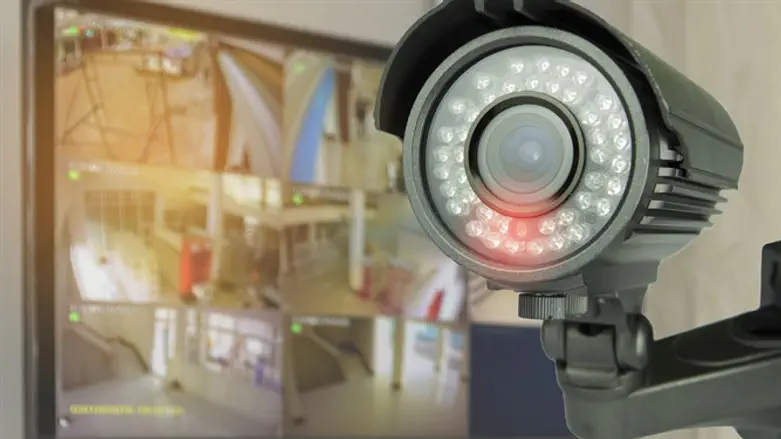
Police are promoting a bill that would allow them to use facial recognition technology in public spaces across Israel without a warrant.
A draft of the bill posted by the Public Security Ministry was made public earlier in July, and is open for public comment until tonight, Thursday, at midnight.
While police today already make use of license plate recognition technology “to improve enforcement and maintain public peace and security,” the bill says that it would “regulate the usage” of recognition technologies used by police.
The bill states that the goal of installing the new technologies is the “prevention or thwarting of offenses that could endanger the wellbeing and security of a person, the wellbeing of the public or state security; Investigation of crime patterns in crime-type offenses, as well as detection of crime-type offenses and their perpetrators; Prevention of serious harm to the safety of a person or property, [in] a situation in which there is a real fear of such harm; Locating a missing person or one for whom there is concern for his wellbeing; Enforcement of entry prohibitions and distancing orders from public places.”
The systems will be set up “in such a way so as not to harm, insomuch as is required, a person’s privacy,” the text adds.
The bill also notes the data collected by police will be confidential, but says that police can share the data with another public agency “for the purposes of fulfilling its duty.”
According to Ha’aretz, critics of the bill warn that the new law will allow the police to establish its own biometric database, which would be more advanced than the government's current one.
Further, the draft bill doesn't regulate storage and use of the data, leaving this up to the public security and justice ministers' decision, which would have to be approved by the Knesset's Interior and Environment Committee.
“For years now the police have been employing more and more surveillance technology behind the backs of citizens that erodes our privacy," said Attorney Anne Suciu, of the Association for Civil Rights in Israel, according to Ha’aretz. "Now, instead of regulating and restricting these means by law, the police are asking for a blank check to continue in the same way.”
She said the bill “will allow the police to conduct mass surveillance of citizens, including biometric facial recognition. This law is a huge threat to the privacy of all of us and it gives a free hand to the police to use the information it gathers by means of this technology without judicial oversight. We will not let this surveillance law pass."